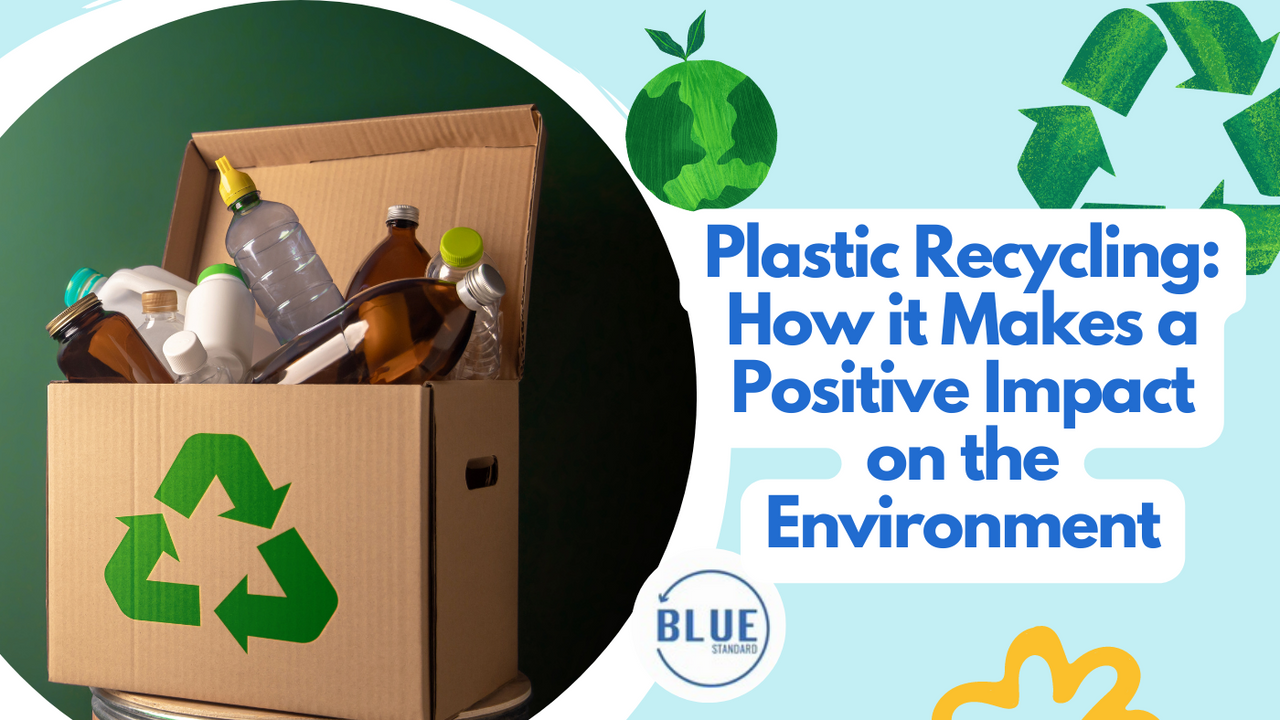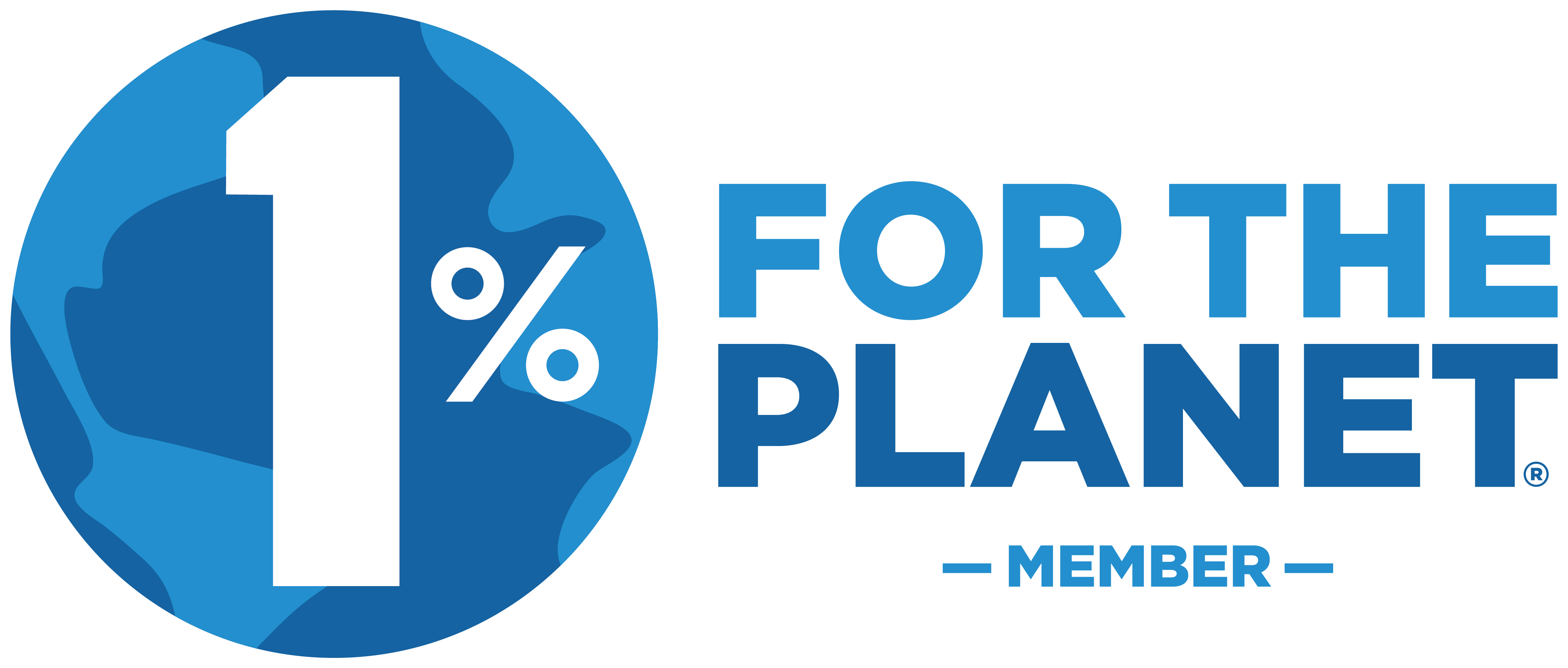
Plastic Recycling: How it Makes a Positive Impact on the Environment
Are you aware that plastics decompose in different forms and sizes for hundreds of years? This rapid increase in the production and use of plastics has made plastic pollution a significant environmental issue globally. Fortunately, recycling offers a lasting solution to this problem. Recycling plastic instead of disposing of it can help reduce waste, energy use, and greenhouse gas emissions.
This article discusses how plastic recycling can positively affect the environment.
What is plastic recycling?

Plastic recycling is a process that involves recovering plastic waste and transforming it into new products. The goal is to reuse plastic and turn it into recycled plastic products instead of disposing of them in landfills or the environment.
The plastic recycling process starts with sorting and cleaning the plastic waste to remove contaminants such as dirt, food debris, and other non-plastic materials. The cleansed plastic waste is then shredded into small pieces and processed into new products, such as plastic bags, water bottles, and furniture.
The plastic recycling process has evolved significantly in recent years, thanks in part to technological advancements and increased awareness of the importance of recycling.
Today, many different recycling programs and facilities are available, making recycling plastic waste more effortless than ever. Additionally, many companies are now making a conscious effort to use recycled plastic in their products, which helps to create a market for recycled materials.
The benefits of plastic recycling
One of the main benefits of plastic recycling is that it helps to conserve natural resources. By recycling plastic waste, we can reduce the need for new plastic production, which often requires using non-renewable resources such as oil and gas.
Additionally, plastic recycling can help reduce greenhouse gas emissions associated with producing new recycled plastic products. This is because producing new plastic requires significant energy, often releasing harmful emissions into the atmosphere.
Another benefit of plastic recycling is that it can help reduce the amount of waste in landfills. Landfills are already overcrowded with waste, which will take hundreds of years to break down. Plastic recycling has numerous benefits, and protecting the environment and preserving resources is crucial. Recycling plastic helps to reduce waste, save energy and resources, create jobs, reduce greenhouse gas emissions, and encourage sustainable practices.
As individuals, we can all make a difference by properly disposing of plastic waste and supporting recycling efforts like producing recycled plastic products. Doing so can contribute to a healthier planet and a more sustainable future for future generations.
How it makes a positive impact on the environment

As we move towards a more sustainable future, we must understand how to reduce the negative environmental impact. One of the ways we can achieve this is by recycling plastic. Despite the common misconceptions about plastic recycling, it is an effective way to reduce the amount of waste.
Here are some positive impacts on our environment:
#1 Reducing waste
Plastic waste is a growing environmental problem that affects ecosystems, marine life, and human health. Recycling plastic products reduces the amount of waste in landfills or pollutes the ocean. Moreover, recycling decreases the need for new plastic production, resulting in fewer products in landfills that take decades to break down.
#2 Saving energy
Recycling plastic requires less energy than producing new plastic products by melting and reusing plastic bottles, bags, or containers. It takes less energy to make recycled plastic than to create new plastic. As a result, recycling reduces greenhouse gas emissions.
#3 Conserving natural resources
Recycling plastic means reusing and preserving natural resources, such as oil. Oil is the primary raw material used in making plastic products. Recycling one ton of plastic saves up to 2,000 gallons of oil. Hence, recycling plastic helps conserve natural resources, which is a sustainable solution.
#4 Creating jobs
Recycling creates job opportunities in the recycling industry. Recycling centers process plastic products, segregate and sort materials, and prepare them for manufacturing. Recycling opportunities have protected jobs, higher pay than landfilling, and lower environmental impacts. As a result, recycling benefits the environment and creates employment opportunities.
#5 Environmental preservation
Plastic recycling contributes to environmental conservation. Recycling reduces the plastic waste that pollutes our environment, destroys marine life, and generally affects the quality of life. Recycling helps balance environmental ecosystems, keeps oceans and beaches clean, and protects wildlife in these environments.
We can make an impact!
Recycling plastic is essential to help reduce the impacts of plastic waste on the environment. It helps to conserve resources, reduce greenhouse gas emissions, and create employment opportunities, among other benefits.
At Blue Standard, we are committed to promoting sustainability by advocating for responsible environmental stewardship. We encourage everyone to do their part by supporting plastic recycling, reducing plastic waste, and reusing plastic products whenever possible.
We encourage you to take steps toward reducing plastic waste by recycling as much plastic as possible. We can make the world cleaner and safer for future generations through collective effort. We can help protect the environment and achieve a more sustainable future.
Visit us to learn more about how can you make a difference https://bluestandardinc.com/
Quick links
Search
Privacy Policy
Refund Policy
Terms of Service
Environmental Sustainability Policy
Ethics Policy
Global Human Rights Policy
About us
Redefining Excellence in Sustainability: At Blue Standard Inc, every product we craft sets a new benchmark, embodying sustainability at its core. Our range, featuring recycled, circular, and up-cycled items, epitomizes the elegance of eco-conscious innovation.

